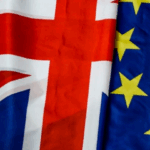Britons are expected to spend a total of £4.6 billion in the Boxing Day sales this year, with the average shopper forecast to part with £236, according to new research from Barclays. While this represents a slight decrease from the £4.7 billion spent in 2023, it highlights a continued demand for discounts despite ongoing concerns over the cost of living.
The projected spend per person has dropped by £18 compared to last year, but it is still £50 more than in 2019, before the pandemic. Researchers attribute the increase to inflation as well as consumers’ ongoing desire to find value for money during the post-Christmas period.
Men are expected to outspend women by £53, with a shift in spending patterns likely to reflect a focus on practicality and sustainability. “It’s encouraging to hear that consumers will be actively participating in the post-Christmas sales,” said Karen Johnson, head of retail at Barclays. “We’re likely to see a shift towards practicality, with many shoppers looking for bargains on kitchen appliances and second-hand goods.”
Barclays’ research reveals that kitchen gadgets, especially air fryers, have surged in popularity, with year-on-year sales up 7%. This trend reflects consumers’ efforts to save on high-ticket items that might otherwise be out of reach.
Despite rising costs, many shoppers are still planning to make the most of the sales. Nearly a quarter of consumers, however, plan to purchase only essential items. In a notable shift, more than a quarter of the public (up from 15% in 2023) plans to shop in-store this year, driven by the desire for social interaction, the ability to touch and feel products before purchasing, and the traditional excitement of high-street shopping.
“I’m excited to return to the high street for the first time since the pandemic,” said shopper Gabrielle Kirkham. “It’s easier to try on clothes and skincare in person, so I’m looking forward to picking up some discounted items.”
While some retailers are closing their doors on Boxing Day, those that remain open are likely to benefit. A quarter of consumers planning to shop in the sales will spend most of their money in physical stores, with many citing the ability to see products firsthand and the enjoyment of socializing while shopping.
High streets and shopping centres are expected to be the top destinations, with around one-third of British consumers intending to visit them. Supporting local businesses is also a key motivator for many, with 17% planning to shop on their local high street and 15% supporting independent retailers.
However, online shopping is set to capture the largest share of spending. Barclays forecasts that 65% of Boxing Day purchases will be made online, a slight increase from last year. To entice more people back to physical stores, retailers might consider offering in-store-only discounts or exclusive gifts, with around a third of shoppers saying such offers would sway their decision.









